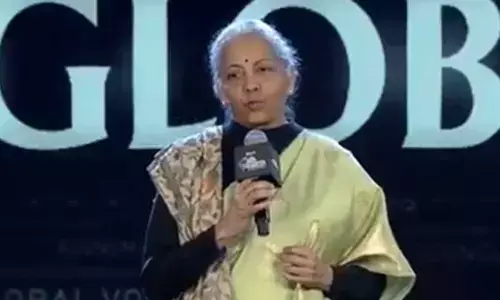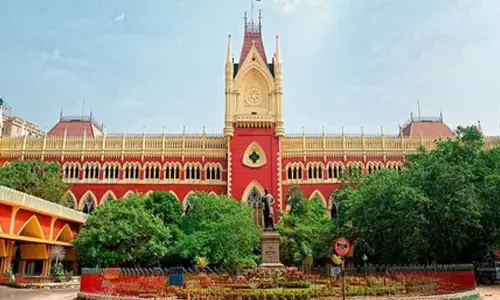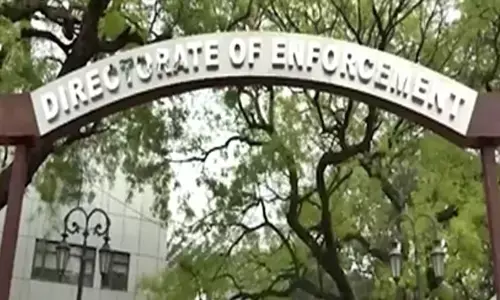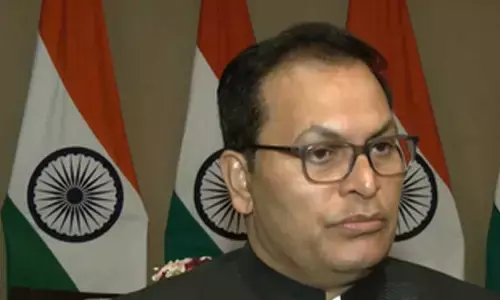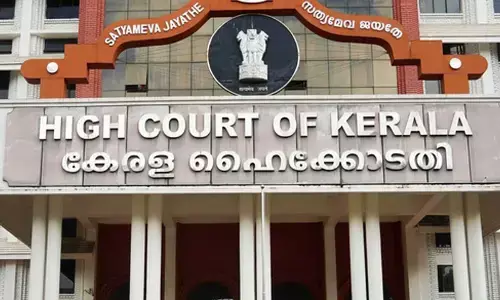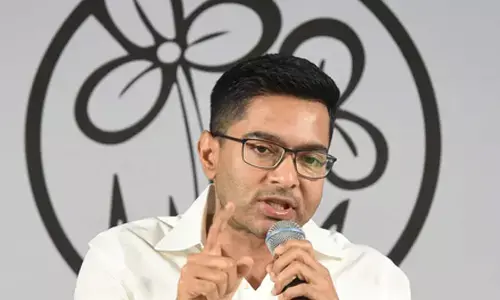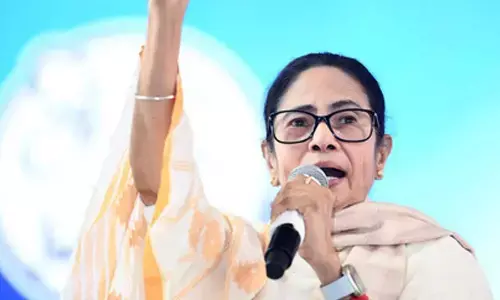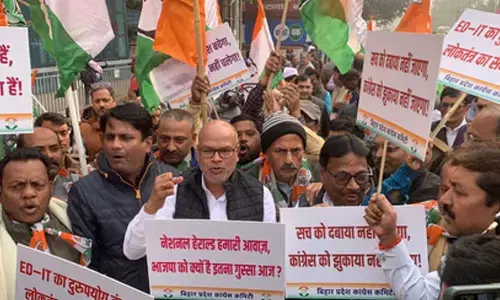A mortal threat to Modi’s model
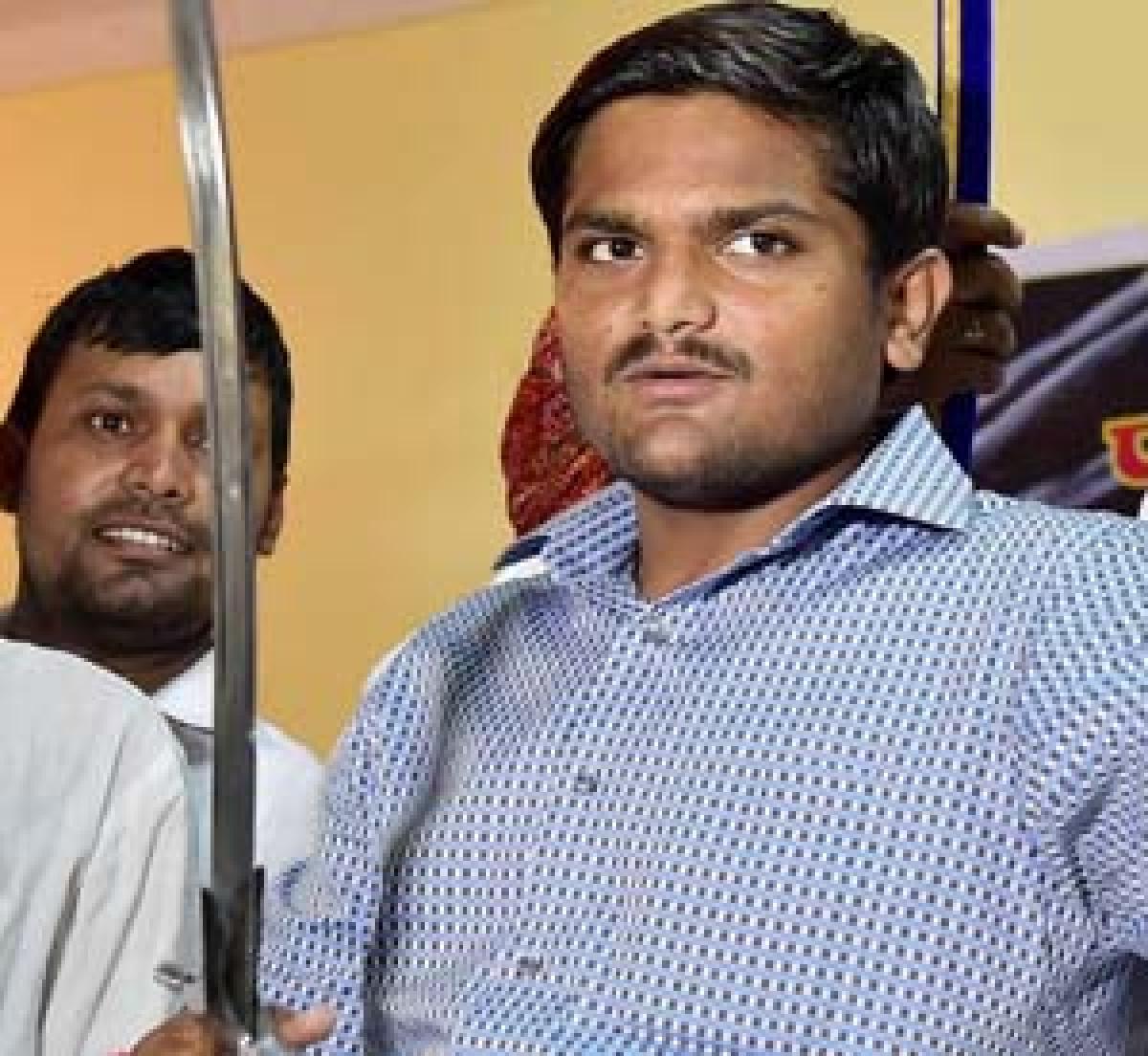
A mortal threat to Modi’s model. Ahmedabad: Hardik Patel, a sword-wielding 22-year-old activist, has emerged overnight as the most pressing political threat to Narendra Modi, accusing the Prime Minister of breaking a promise to provide jobs that helped him win last year\'s general election.
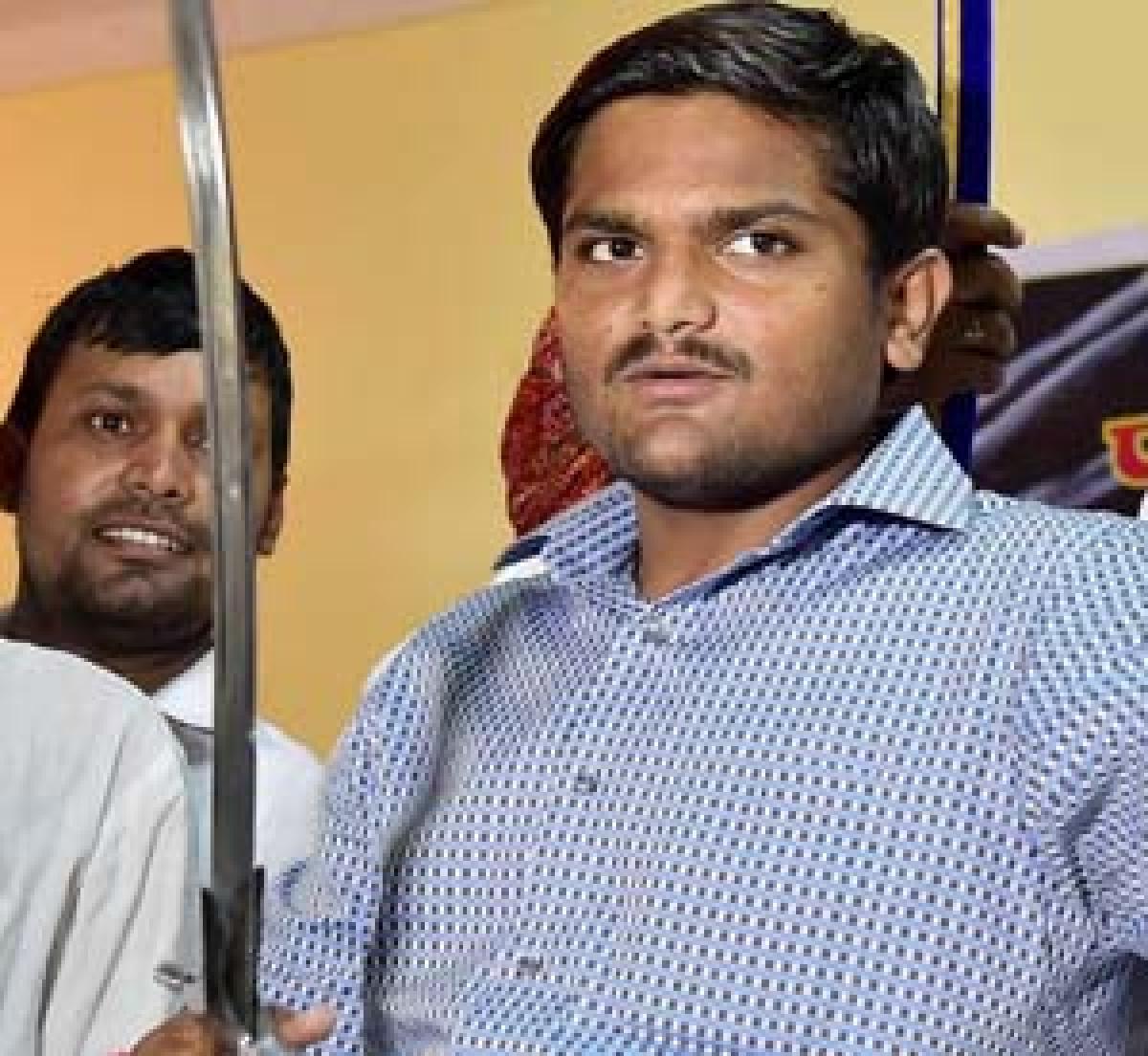 Ahmedabad: Hardik Patel, a sword-wielding 22-year-old activist, has emerged overnight as the most pressing political threat to Narendra Modi, accusing the Prime Minister of breaking a promise to provide jobs that helped him win last year's general election. Patel, by his own admission, scraped through college and failed to land a steady job.
Ahmedabad: Hardik Patel, a sword-wielding 22-year-old activist, has emerged overnight as the most pressing political threat to Narendra Modi, accusing the Prime Minister of breaking a promise to provide jobs that helped him win last year's general election. Patel, by his own admission, scraped through college and failed to land a steady job.
But he has proven to be a talented organiser and rabble-rousing orator, creating a mass movement in a matter of weeks. The explosive issue he has locked on to is caste: He says India's policies of affirmative action have shut his community – the Patels, also known as Patidars – out of university places and government jobs.
Patel has stirred upheaval in Gujarat, the state Modi ran for 13 years before he became the Prime Minister - an era of rapid industrial growth that his Bharatiya Janata Party (BJP) successfully pitched to voters as a "model" to bring prosperity to India's 1.2 billion people. Patel calls the model hyped, saying Modi "tried to sell platinum when all he had was steel.”
Protests culminated on last Tuesday in a rally by half a million people in Ahmedabad, Gujarat's largest city. Violence broke out across the western state after police detained Patel briefly, leading to at least seven deaths. "Brother Modi is very angry with me and my community – we have exposed the flaws in his economic and social model," Patel said in an interview on the outskirts of Ahmedabad.
"But he shouldn't forget that we supported him." Gujarat still bears the scars of sectarian bloodletting in 2002 when more than 1,000 people were killed, mostly Muslims. Modi has long faced accusations of failing to quell those riots. Modi's calls for calm now cut no ice with Patel: "I am ready for a fight to protect the Patels against the economic domination of the lower castes," Patel, a slight man with a broad face and thick hair, told Reuters late last week.
Patel came on Sunday to New Delhi to meet leaders of other castes that also harbour jobs grievances. Brandishing a sword before his supporters, he vowed to launch protests across India. The Patels, who make up 14 per cent of Gujarat's 60 million people, are not poor by the Indian standards. Originally landowners – the name Patel means one who owns land – they have branched out into trades like diamond polishing in India.
The community is also highly mobile and Patels own thousands of small businesses in the United States and Britain. Yet, in a country where 700 million people subsist on $2 a day or less, many Patels still aspire to join a nascent middle class. With the economy growing too slowly to create jobs, they say they are being excluded from scarce government posts. After independence, India protected lower castes and tribal communities by reserving college places and government positions for them.
These quotas were later expanded to add "Other Backward Classes,” including the one that Modi comes from. The Patel protests have damaged Modi's reputation as an economic policy maker and have had an impact in the northern state of Bihar that will soon go to the polls. Chief Minister Nitish Kumar, seeking to keep Modi's BJP out of power, has sympathised with the Patels.
Officials in Gujarat admit to being blindsided by the outburst of anger, even though they knew that the Patels' small businesses were struggling and the community was sidelined when profitable new dairy cooperatives were set up. Some analysts speculate the protests were encouraged by the Rashtriya Swayamsevak Sangh (RSS), a Hindu organisation allied to the BJP that also opposes reservation. RSS leaders told Reuters that they played no role, however.
What is clear is that Hardik Patel enjoys the patronage of influential Patel politicians who fell out of favour with Modi. "There are several senior Patels standing behind him who were waiting for Modi to leave Gujarat," said one industrialist from the Patel clan. "Hardik Patel is a smart soldier and an able commander." Protests against India's affirmative action programmes erupted 25 years ago, when caste-based quotas in jobs and colleges were sought to be expanded.
The current movement appears to have snowballed because Modi has not been able to meet the expectations of some of his supporters while the economy remains stalled. "Gujarat's much-celebrated growth rate has slowed down in the last two years. There are hardly any jobs to absorb the young and the restless," said Sebastian Morris, a professor of economics at the Indian Institute of Management in Ahmedabad. "This problem is not just in Gujarat, but it is faced by youths across India."
By Rupam Jain Nair








